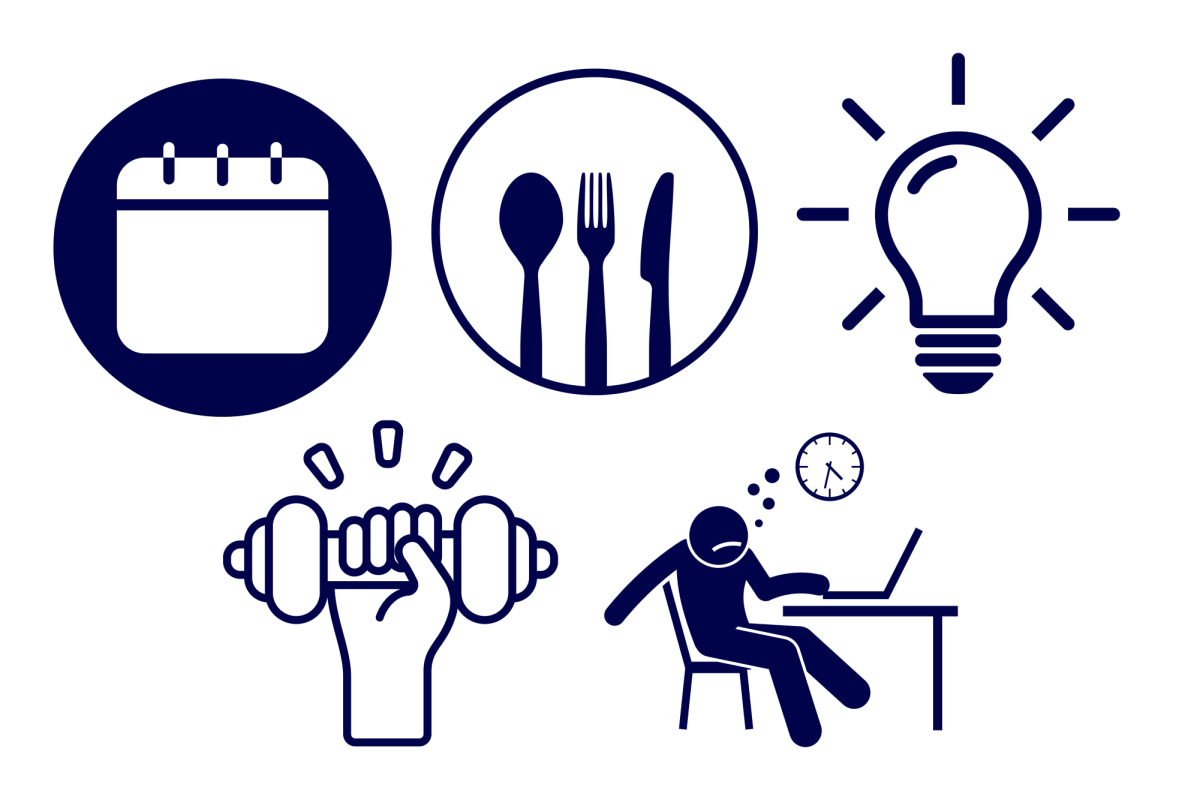Sleeping may seem like simply a mindless and unimportant activity that our bodies do automatically, but it is one of the most crucial things for staying in good health and remaining focused and stress-free. It occupies around one-third of every person’s life and lets our brains relax from the exhausting days that they spend, constantly holding onto our thoughts and telling our organs how to function. It is the reason that we can be energized and enjoy the times we are awake. Sleep is something that we all need, but often find difficult to have enough time for.
High school students need sleep so that they can stay awake during the school day and concentrate in class. In order for them to do this, it is recommended that they get about eight to 10 hours of sleep each night. Finding this kind of time in the middle of everything else going on such as homework, jobs and hanging out with friends can be extremely difficult.
Almost three-fourths of all high school students regularly get less than the recommended eight to 10 hours of sleep, with a majority of them only getting around seven. Although everyone gets insufficient amounts of sleep for different reasons, making sure to do these five things should help you find more time for sleep and maximize its effects.
1. Build a sleep schedule and keep it consistent.
Make sure to wake up and get to bed around the same time every day, as this is one of the best ways to help limit exhaustion and tiredness during the waking hours. It allows your body to know in advance when it is time for sleep so you can fall asleep more easily and stay asleep throughout the night.
2. Limit food intake a few hours before bed.
Having proper nutrition is vital to every person’s health, so make sure to consume enough food well ahead of bedtime so that sleep disruption is kept at a minimum. Eating even an hour before bed can increase your chances of having acid reflux or waking up during the night because your body is in the middle of digesting food.
“Research shows that eating high-calorie meals with large amounts of fat or carbohydrates less than an hour before bedtime can extend the time it takes to fall asleep,” said the Sleep Foundation.
3. Minimize exposure to light before sleep.
Darken your surroundings and stay away from screens right before bed to allow your body to relax and alert you that it is almost time to fall asleep. Circadian rhythms are based on exposure to light, so staying away from light before bedtime prepares your body for the sleeping stage.
4. Refrain from too much physical activity late in the evening.
Exercise is crucial for maintaining physical and mental fitness and living a long and healthy life. Some people may prefer to do it later in the evening, but this might not be the best idea as it can harm sleep quality and keep you awake during the night. Exercise earlier in the day so that the endorphins released in your body while exercising do not interfere with your sleep.
“[People] should exercise at least one to two hours before going to bed, giving endorphin levels time to wash out and ‘the brain time to wind down,’” said Johns Hopkins Medicine.
5. Do not procrastinate.
Procrastination is something that is very hard to avoid and is a part of most high school students’ lives. Students often end up staying up late the night before their assignments are due because they decided to procrastinate. Make sure to get things done as soon as possible in order to limit having to stay up late so that you have more time for sleep.










